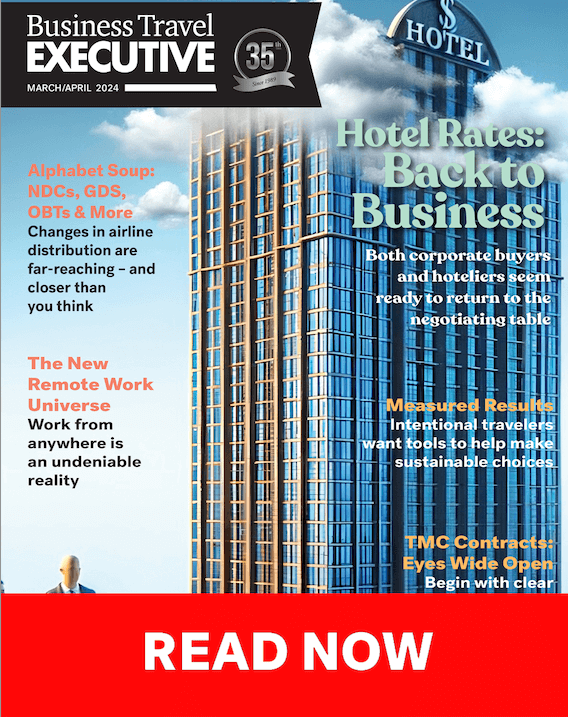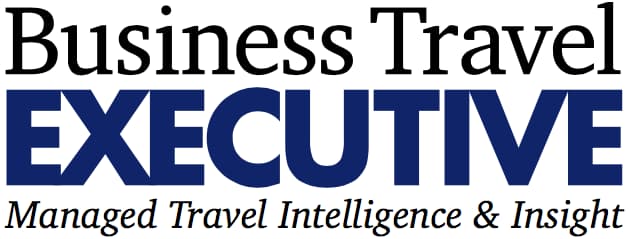But then if you’re someone who’s tried to download a movie or upload a gigantic e-mail attachment, we’re probably not telling you something you haven’t already figured out for yourself. Some days are better than others, and some localities seem blazing fast – others, not so much. Maybe it’s sunspots or phases of the moon, or maybe you’ve got to stick your finger in the air and hold your mouth just right and click your heels three times.
Slow inflight connections are not surprising given the technology challenges at 30,000 feet, and perhaps it’s understandable that airport WiFi is inconsistent, in light of the demands on bandwidth. But what about hotels? With the rising investment in the lodging sector, it would stand to reason that, since connectivity is so important both to business and leisure travelers, improved WiFi would be at the top of the priority list.
In fact, the quality of hotel WiFi varies widely, according to a new report by hotelwifitest.com, a website which offers a simple WiFi test that guests can run while staying in a hotel. To ensure that the basic quality expectations for Internet access are met, the test measures upload and download speeds, latency and stability, and then tabulates how adequate that property’s WiFi is.

‘Adequate’ translates to an expected download speed of at least 2Mbps, an upload speed of 1Mbps, latency not exceeding 500ms, and an average stability rating of at least 3 out of 5. The consumer report also does not differentiate between paid and free WiFi.
Some further clarification may be in order: The website differentiates between expected speed – the speed you would likely get at a randomly chosen time of the day – and maximum speed, which shows the bandwidth potential of the hotel.
From these results, hotelwifitest.com has compiled a list of 20 destination cities globally, ranked by the percentage of hotels that fail to meet its criteria for having adequate WiFi. Among the 20 most tested cities, Stockholm had the lowest percentage of hotels with low-quality WiFi (4 percent), while the city with the highest percentage of hotels with inadequate WiFi is Las Vegas (57 percent).
So far, hotelwifitest.com has racked up tests on over 500 hotels in 20 cities. Here they are along, ranked in order with their percentage of below-par hotels:
CityPercent of hotels with inadequate WiFi
Stockholm 4
Hong Kong 8
Amsterdam 17
Tokyo19
Rome27
Dubai29
London30
Berlin31
San Diego33
Barcelona35
Washington 37
Singapore 38
Chicago38
Vienna 40
Bangkok41
New York41
Orlando 44
San Francisco48
Paris53
Las Vegas57
It’s also interesting to note that speedy WiFi and high room rates do not necessarily go hand in hand. While the pillows may be fluffier and the bathrobe cushier, paying more for your room is no guarantee of better Internet performance.
For example among the 190-plus hotels tested in New York City, at the posh 5-star Plaza hotel – with its 5th Avenue address and $925 a night rate – the WiFi’s ‘expected speed’ came in at a leisurely 1.6Mbps. On the other end of the spectrum, the speediest WiFi on the list belongs to the Da Vinci hotel, which clocked in with a blazing 53.1 Mbps – and rooms that start a more modest $279 per night. Plus the WiFi is free.
Uber Gets On Board with United, Hyatt, Expensify Uber, the technology platform that provides transportation services on demand, is now available on apps from United Airlines and Hyatt Hotels. In addition, Expensify has announced a partnership to add Uber to its Expensify Trips.
United Airlines is the first airline to offer customers Uber services via its mobile app. Customers with iOS and Android mobile devices can access Uber ground transportation information in the United app's menu or in the "My Reservations" card with a current reservation.
For a limited time, customers who sign up for Uber via the United app and complete their first transaction will receive 1,000 MileagePlus award miles.
Hyatt is the first hotel brand to integrate its mobile app with Uber, available in more than 100 cities around the world in which Uber operates and Hyatt hotels are located. In those locales, an Uber button will appear under the My Reservations section of the Hyatt app from the day of check-in to the end of the stay.
Expensify Trips is integrating Uber into a functionality called SmartRides. Once the plane lands, users are prompted by the Expensify app to select their desired Uber service so that a driver will be waiting. In the coming weeks, Expensify will fully integrate with Uber For Business, which will allow customers to centrally bill and manage an employee's Uber trips.
Online Channels Bookings Continue to Grow in 2014
Online channels, which include online travel agents, hotel websites and global distribution systems, continued to grow in popularity among individual business and leisure travelers in the second quarter 2014. This according the TravelClick North American Distribution Review which aggregates hotel bookings by channel for the transient segment.
In the second quarter of 2014, the OTA channel, which includes Expedia, Priceline, Orbitz, Booking.com, etc., saw the largest increase in bookings, up 12.8 percent compared to last year. Hotel website bookings increased year-over-year by 6.9 percent. The GDS channel grew 2.7 percent. Calls directly to the property and walk-in customers was flat at 0.3 percent from a year ago, and the CRS channel was slightly down, at -1.7 percent.
Among all transient channels, the OTA channel had the highest growth in average daily rates with an increase of 10.7 percent year over year. Looking ahead to third quarter 2014, OTA ADR is tracking ahead of the same time last year by 11.3 percent.
United Tests Mobile Passport Scanning
United Airlines is testing a new passport scanning feature on the airline's mobile app. Customers aboard international flights now have the ability to scan their passports to check in via their iOS and Android mobile devices. United is the first US airline to offer fliers passport scanning functionality.
In the 24 hours before international departures, customers use the app to scan their passport or verify their previously stored passport data. The app uses the mobile device's camera to capture travelers' passports, similar to a mobile banking deposit. Jumio Inc., a credentials management company, will then verify the traveler’s passport for additional security.
Customers requiring additional travel documentation, such as visas, will continue to check in at the airport.
CBP Trials Mobile Passport Control App at ATL
US Customs and Border Protection has launched Mobile Passport Control, the first authorized app to expedite a traveler’s entry process into the United States.
The app was developed by Airside Mobile and Airports Council International-North America and is being piloted at the Hartsfield-Jackson Atlanta International Airport.
The app allows eligible travelers to submit their passport information and customs declaration form via a smartphone or tablet prior to CBP inspection. Arriving travelers present their passports and smartphone or tablet with digital bar-coded receipt to a CBP officer.
The app does not require pre-approval, is free and does not collect any new information on travelers. iPhone and iPad users can download the app free from Apple’s App Store. The program is expected to expand to more airports later this year and an app for Android smartphone users will be available in the future.
Ford & Choice Launch Hands-Free Reservations
Choice Hotels International has launched hands-free hotel reservations for Ford vehicles. Drivers of Ford vehicles equipped with SYNC AppLink can download Choice Hotels' Android app, which will enable them to use voice commands to search for available rooms at nearby Choice Hotels, hands-free. The same functionality for iPhone users will be made available in the near future.
Currently more than 1.5 million Ford vehicles in North America are equipped with SYNC AppLink and by 2015, Ford will have more than seven million SYNC AppLink-enabled vehicles globally.
The Hotel Industry’s First Robotic Butler Debuts
Aloft Hotels has introduced A.L.O., the first Botlr (robotic butler) at Aloft Cupertino. Aloft is the first major hotel brand to field a robot for both front and back of house duties.
A.L.O. will make multiple guest deliveries, communicate effortlessly with guests and navigate throughout the property – including the elevator – with ease. Professionally “dressed” in a custom shrink-wrapped, vinyl collared uniform and nametag, A.L.O. accepts tweets as tips.
Cetrom Rolls Out Custom Cloud Travel Management Solution
Cetrom Information Technology, Inc., a provider of custom cloud solutions, has introduced its Cloud Computing solutions for travel management. This solution can be customized and scaled to suit an individual TMC’s specifications, include high-level protection of sensitive customer data, and enable ease of access through a variety of mobile communications devices.
Cetrom creates IT solutions to meet specific user, mobile, security and application needs for a variety of business sector. Headquartered in Vienna, VA, the company has 13 years of experience creating custom cloud solutions for a variety of industries.
Marriott Expands Mobile Check-in and Checkout
Marriott International has announced a significant expansion of the company’s popular mobile check-in and checkout feature. Eleven additional brands are now providing mobile check-in and checkout: Ritz-Carlton, JW Marriott Hotels & Resorts, Renaissance Hotels, Autograph Collection, AC Hotels, Courtyard, SpringHill Suites, Fairfield Inn & Suites, Residence Inn, TownePlace Suites and Marriott Executive Apartments.
Mobile check-in and checkout are available in five languages: English, French, Spanish, German and Mandarin, and will be live at more than 4,000 hotels worldwide by year-end.








